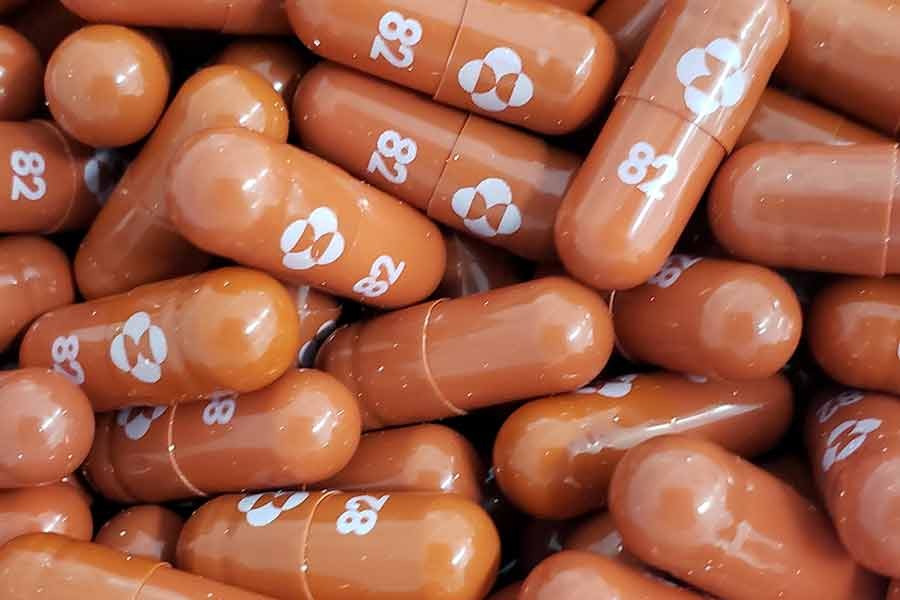Responding to some 10 local drug makers' appeal, the country's drug regulatory body, Directorate General of Drug Administration (DGDA), has authorised four local drug makers to manufacture and market the generic anti-Covid-19 drug, molnupiravir. Understandably, the government has made the move in line with the UK's recent decision to clear the drug recently for use against the Covid-19 disease in that country. As could be gathered from reports in the relevant science journals, the oral anti-viral pill, if applied at an early stage of the COVID-infection, can reduce the risk of hospitalisation and death by half.
In that case, it is important that the local medical facilities have the efficiency to diagnose a patient at a primary stage of the infection. That is to ensure that the users are able to draw the desired benefit from the drug. But does the country's health service have the required capacity to arrange quick COVID testing for the people so they may know the status of their infection, if any, at its early stage? If not, the health authorities concerned need to improve the capacities of the existing COVID testing facilities in the country. Also, the cost of testing has to be brought down drastically so that the public is duly encouraged to get tested for their COVID profile. Simultaneously, the health department, the Directorate General of Health Services (DGHS), in particular, will be required to train an army of skilled manpower to carry out such a massive testing programme. Side by side with these efforts, the public's awareness level has also to be raised, especially, about the appropriate timing regarding the application of the anti-COVID pill so they may get the optimum benefit out of it.
It would be worthwhile to note on this score that there are already anti-COVID drugs in the market, namely, remdesivir of Gilead Science, or the monoclonal antibody cocktail (created by cloning a unique white blood cell), of Regeneron. But the problem is a patient has to be injected with those drugs. Clearly, monopiravir is at an advantage if only due to its oral applicability. Evidently, an oral tablet against the COVID virus is a breakthrough development of medical science. However, at this point, one would do well to keep in mind that the anti-COVID pill is not an alternative to vaccine. That means, the use of the oral anti-COVID pill and that of the jab should go hand in hand.
Admittedly, the introduction of the anti-COVID pill in the country, on all counts, is a step forward as it would add further momentum to the nation's ongoing war against the pandemic. Now that the local pharma companies have gone into production of the drug, thanks to the original drug makers' offering the sublicensing right to do so, the drug should be soon available in the market for the general public's use. However, for the drug to be within the easy reach of the common people, its price tag needs to be rational. But the price of the drug as indicated in Wednesday's issue of this paper, appeared to be rather expensive from the point of view of the low-income patients' purchasing power. Against this backdrop, the government has a role to play. And to ensure that the low-income people are not excluded from the benefits of the anti-COVID drug, it has to be available in the market at an affordable price.


